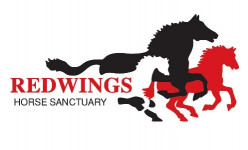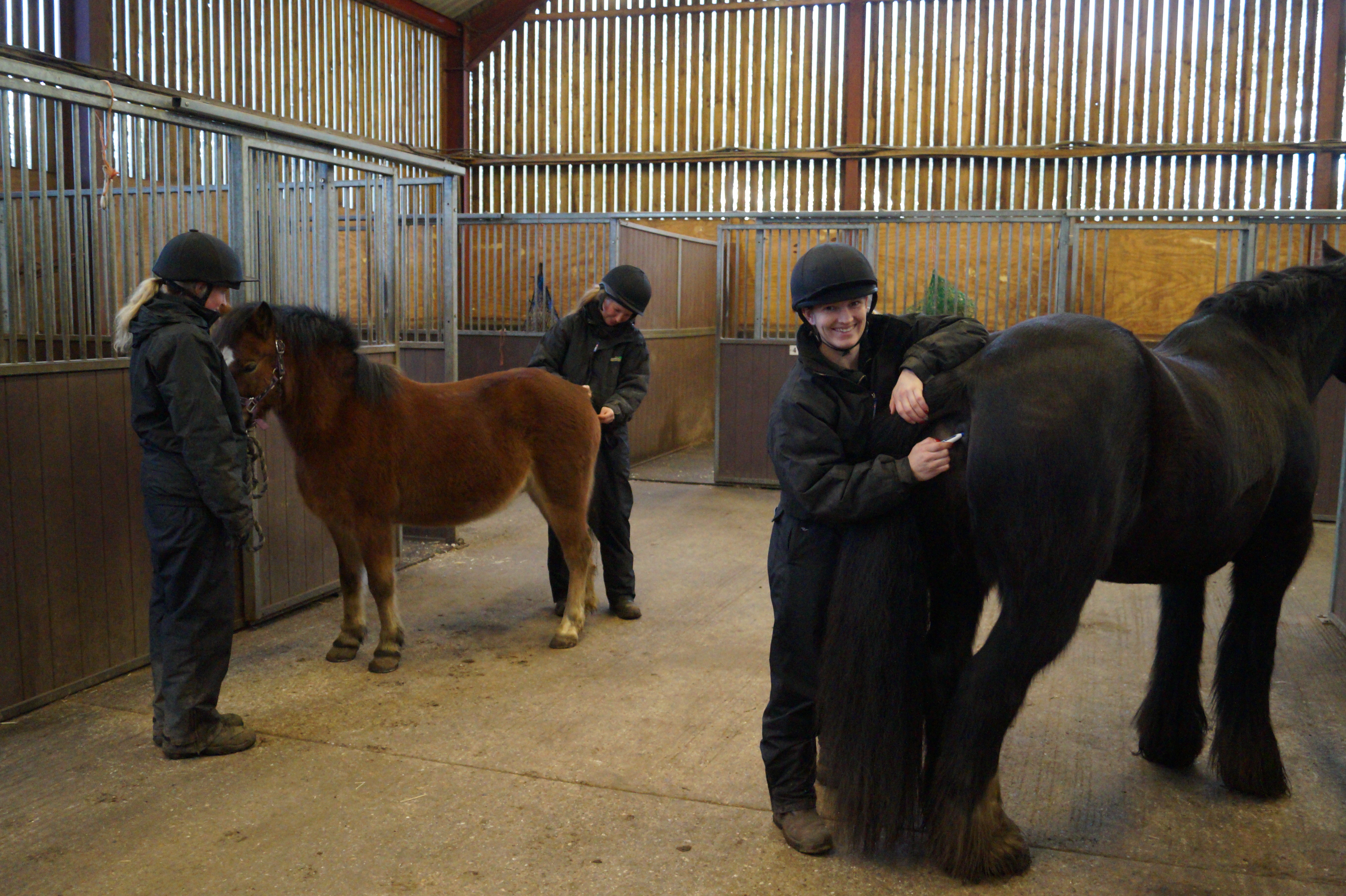Posted: 5th April 2022 | Back to news feed

This year’s Strangles Awareness Week kicks off on 2nd May and is the perfect opportunity for everyone to better protect horses and yards from strangles – and other potentially devastating infectious diseases. One of the simplest ways we can all stay a step ahead of strangles is to spot fever early. A raised temperature is generally the first sign of infection, and is likely to occur before the horse has become contagious to others. This means that noticing fever in the first few hours and taking action as a precaution can be the difference between one infected horse on a yard, or many.

What’s the Challenge?
Every day from 2nd – 8th May we’re asking horse owners to take their horse’s resting rectal temperature and upload each reading on our digital Tem Checker (https://www.redwings.org.uk/strangles/horse-temperature-checker). The average temperature for each horse will be calculated automatically as the week progresses and any temperatures that could be a concern will trigger a message to make sure the owner is aware. Entrants will also be entered into a prize draw to win a ‘bum’per goodie bag!
For anyone who may be new to temperature checking, there will be top tips shared during April, and we even have digital thermometers available at a discounted price available from Redwings’ online shop! (https://www.redwings.org.uk/shop/saw2022thermometer )
More details about the Temp Check Challenge are available in our free SAW2022 Activity Guide (https://www.redwings.org.uk/sites/default/files/SAW2022_Campaign_Asks_Vets_Owners_Yard_Managers.pdf)

Why temperature check?
Temperature checking is a straightforward, cheap yet very effective tool in our armoury against infectious disease. A raised temperature can also indicate other infections or health issues so monitoring temperature is an all-round helpful way to check in with your horse. A horse with even a slight fever is not going to be feeling great or performing well.
Regular temperature checking also means knowing what is normal for your own horse. A reading of 37.8 degrees may be entirely average for one individual, but half a degree higher than usual for another, meaning it’s worth keeping an eye on them and taking another reading in a couple of hours.
Despite the value of checking horses’ temperatures, studies show that many owners are yet to include the practice in their horse care routine. A survey by the British Equestrian Trade Association showed that more than half of respondents didn’t temperature check unless they noticed other signs their horse was unwell. With strangles, once symptoms such as nasal discharge or a cough are evident, the disease has already had chance to spread and the window of opportunity to contain the outbreak is lost.
Lack of temperature checking was identified as one of the ways the EHV-1 outbreak spread so far and so fast in Valencia in early 2021, with 18 horses tragically losing their lives as a result. It is now mandatory for any horse entered into an FEI event to have their temperature checked and logged twice daily for three days prior to arrival, as well as during the event itself.
The SAW2022 Temp Check Challenge encourages everyone to get used to routine temperature checking.
Are you a yard manager?
SAW2022 is also a great time for yard managers to review, update and circulate their yard biosecurity policy. Research shows that businesses with a written protocol tend to achieve and maintain better biosecurity practices than those that don’t share their standards in a clear document.
For anyone unsure where to start with a yard policy, a template document that can be easily adapted is available on the yard manager page of the Strangles Hub (https://www.redwings.org.uk/strangles/help-and-advice/yard-managers ).

Make the most of SAW2022
Now in it’s third year, Strangles Awareness Week has already grown to become a major international campaign, being shared from Sweden and the Netherlands to Australia and Poland. And in a year when a new strangles vaccine is about to be launched, and surveillance is giving us more information than ever about how the disease operates, there couldn’t be a better time to get involved!
To get started, simply follow the Strangles Awareness Week Facebook page (https://www.facebook.com/StranglesAwarenessWeek ) where we’re already posting information, ideas, resources and encouragement to help us all protect horses from a disease that really doesn’t discriminate.
The Equestrian Index newsfeed is compiled from articles submitted by advertising members and expresses the opinions of those members. Watsons Directories Ltd shall not be held liable for any inaccuracies or mis-statements therein.